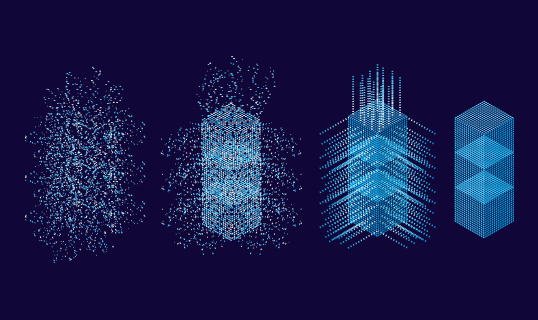Thought Leadership
A Hotelier’s Guide to Machine Learning and Artificial Intelligence

Artificial Intelligence (AI) and Machine Learning (ML) are terms that just a few years ago, would trigger images straight out of a science fiction movie (The Terminator perhaps?). We now all understand the current day reality is really much less dramatic. Artificial intelligence means nothing more than finding ways to engage machines in solving complex tasks, otherwise done by people. Many of us are interacting with a digital assistant with more or less regularity. Who hasn’t used Google translate? Yet, as an industry that was decades ahead in inter-connecting their business systems, hotels have been lagging behind when it comes to the latest technological advancements.
Learning
The quick state described here is surely not a result of lack of will. Every year, millions of dollars are put into digitized guest services, and other initiatives that hold the promise of AI. Widgets are equipped with the ability to learn from interactions. Yet the number of interactions are woefully insufficient to trigger significant improvements. Just think of your own interactions with website’s chatbots. Without the millions of interactions, they can’t learn, and without learning, they’re kind of useless – leading to fewer interactions.
To give any of these tools a chance, we need to give them something useful to do.
Artificial Intelligence in Revenue Management
Revenue Management Systems (RMS) are one of the oldest examples of a much simpler branch of AI – the Expert System. Until just before the rise of the smartphone, we would still read ‘rocket science’ articles with regularity; now of course not so much anymore. Rocket Science today impresses us because of the level of autonomy we equip them with, you guessed it, another type of expert system.
We all know that a Revenue Management System improves over time, as it gathers historical context. Starve it of its access to data, and the best RMS is guaranteed to fail delivering on its promise. Without the ability to collect meaningful data, it’s game over. Nevermind that the human-like experiences we now associate with AI, required billions of dollars in infrastructure, uncountable historical search and other data collected over decades, and focused investment into R&D, deep learning science. It is the gameplay of the likes of Google, Amazon, Apple, or IBM. You’ll notice that each has access to rich data from their core businesses. And each of their specialties really shine through in where their DA’s are strongest.
Alexa surely has its strongest performance in eCommerce and entertainment, GoogleNow in access to information, Siri in interacting with iPhone users, and IBM’s Watson in helping solve complex problems. In terms of all around usefulness to consumers, it is impossible to not be in awe of Google’s achievements. So does this mean it’s game over?
Artificial Intelligence…it’s never been our game
The hospitality industry has been more interconnected than any other. From the Global Distribution Systems in the 1970’s, the switches, to PMS, RMS, Channel Managers, you name it. We expect all of them to be flawlessly interconnected, a critical guest service might fail if not. But it has also allowed us to focus on the minutiae of our systems. If something isn’t done flawlessly by a machine, then it must be under the control of a human – and still mistakes happen. When a system makes decisions, we expect every decision to be flawless; even where systems outperform their human counterpart, we find human errors more acceptable.
So are we looking for better performance or better excuses when something goes wrong? For us as an industry to become active participants and beneficiaries of the advances in AI, we need to accept flaws just as inevitable, as human error. We need to ask ourselves if the complexities we have built into our pricing schemes really make a significant difference in our business, and if these same complexities are sufficiently justified to hinder for example a more fluid reservation or upgrade experience?
Machine Learning and AI all around us
Artificial Intelligence has made its presence in most major industries, such as manufacturing, automotive, banking, healthcare, telecommunications, and media. According to a Forrester report, users of AI will gain almost $1.2 trillion in market share a single year from their less-informed rivals.
AI-enabled devices come in different forms in everyday life, such as self-driving vehicles, navigation systems, computer games, etc. In the travel and hospitality sector, robotic butlers, concierges and luggage handlers have generated significant media buzz. However, these applications are primarily for novelty than for the actual benefits they may deliver.
But don’t be fooled. AI and Machine Learning is starting to deliver real benefits to every department of your hotel. From customer response modeling to demand and inventory forecasting, many AI and ML are enhancing many of your business performance applications.
Real Opportunities for Hotels
Revenue management: Machine learning algorithms significantly enhance the revenue management efficiency. The speed and complexity of the pricing decisions are unmatched by the most seasoned revenue manager. Using multiple sources, algorithms may include 700–800 different attributes to build demand, price, and yield management outcomes. ML algorithms automatically apply the optimal tactics to maximize room occupancy and leverage the most profitable channels. Data-driven pricing can increase return on investment (ROI) by 5-10% and revenue per available room by 7.5-10% on average. A Machine Learning approach demonstrates high results with 97% of hotels claiming sales growth after implementation.
Upselling: With COVID, upselling technology has even more value when there are empty rooms or when guests are booking at the best available rate for standard rooms. ML generates predictions about what customers are most likely to opt for when it comes to product and service offerings and what rate they are likely to pay. Hotels are always searching for better conversion – ML delivers it. Using the predictive analytics and personality branding, hotels will serve exactly the right upgrade offer before the guest even asks for it.
Personalization: ML can learn guest preferences for accommodations based on their past behavior and offer a room with matching attributes. Airbnb utilizes a machine learning model that learns hosts’ preferences for accommodation requests based on their past behavior. For each search query that a guest enters on Airbnb’s search engine, their model computes the likelihood that relevant hosts will want to accommodate the guest’s request. When it comes to hoteliers, McKinsey claims in their research that companies that effectively personalize their services can increase revenue by 10% to 15% and diminish service cost by 15% to 20%.
Due to COVID-19, hotels face low demand and fewer staff members while still having to maintain service standards. By taking advantage of applications that use ML, savvy hoteliers now focus their time on tactics and strategy rather than spreadsheets. Gartner VP Chris Howard notes, “If you are a CIO and your organization doesn’t use AI, chances are high that your competitors do. This should be a concern.”


